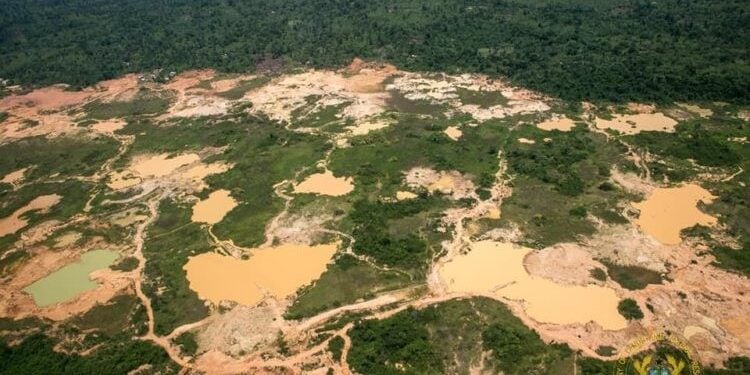The alarming rise of breast cancer cases in Ghana’s Eastern Region has been directly linked to environmental pollution stemming from illegal mining activities, commonly known as “galamsey.” This disturbing connection was revealed by Dr. Beatrice Wiafe Addai, a leading figure in breast cancer awareness and treatment in Ghana, during a workshop focused on cancer education and oncology training. The workshop, held in Kumasi, specifically targeted senior journalists and morning show hosts from regions most heavily impacted by galamsey, underscoring the critical role of media in addressing this public health crisis. The study, a collaborative effort between Peace and Love Hospitals, where Dr. Wiafe Addai serves as CEO, and the University for Development Studies (UDS), revealed a stark reality: the water sources relied upon by communities near galamsey sites are contaminated with dangerous levels of toxic chemicals. This contamination, a direct consequence of unregulated mining practices, has been pinpointed as a significant contributor to the escalating breast cancer rates.
The severity of the situation is further compounded by the late-stage diagnosis prevalent among affected women. This delay, attributed to a combination of limited public health education and inadequate healthcare infrastructure, dramatically reduces the chances of successful treatment and survival. Women in rural communities, often bearing the brunt of environmental degradation from galamsey, face a double burden: exposure to carcinogenic pollutants and restricted access to timely diagnosis and treatment. This unfortunate confluence of factors creates a deadly cycle, leaving many women vulnerable to the devastating consequences of advanced breast cancer. Dr. Wiafe Addai’s findings underscore the urgent need for a multi-pronged approach to combat this growing health crisis.
Dr. Wiafe Addai emphasized the critical importance of locally generated data in shaping effective interventions. She urged government agencies, civil society organizations, development partners, and philanthropists to prioritize and invest in research conducted within Ghana. Such research, she argued, is essential for accurately reflecting the specific realities on the ground and tailoring solutions to the unique challenges faced by affected communities. The emphasis on local research highlights the need for data ownership and the development of evidence-based strategies that are contextually relevant and culturally sensitive. International collaboration while valuable, must be complemented by robust local research capabilities to ensure sustainable and impactful solutions.
The role of the media in this crisis was also highlighted by Dr. Wiafe Addai. Recognizing the power of journalism and broadcasting to shape public opinion and influence policy decisions, she issued a call to action for media professionals to intensify their efforts in raising awareness about the link between galamsey and breast cancer. She urged them to leverage their platforms not only to educate the public about the disease but also to advocate for swift action against illegal mining and its devastating health consequences. The media, she believes, can play a crucial role in mobilizing communities, holding responsible parties accountable, and driving policy changes that protect public health.
The findings of the study serve as a wake-up call, highlighting the devastating impact of unregulated mining activities on human health and the environment. The link between galamsey and the increasing prevalence of breast cancer is no longer a theoretical concern but a stark reality supported by scientific evidence. Addressing this crisis requires a collaborative and comprehensive approach involving government action, community engagement, research investment, and media advocacy.
The study’s findings have profound implications for public health policy in Ghana. It calls for a comprehensive strategy that integrates environmental protection, public health awareness, improved healthcare infrastructure, and stricter enforcement against illegal mining. This integrated approach is essential to break the cycle of environmental degradation and its adverse health impacts on vulnerable communities. The connection between galamsey and breast cancer underscores the urgent need for sustainable development practices that prioritize both environmental health and human well-being. Ultimately, the fight against galamsey is not only about protecting the environment but also about safeguarding the health and lives of Ghanaian women.














